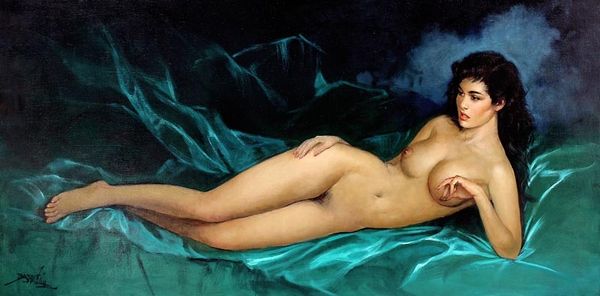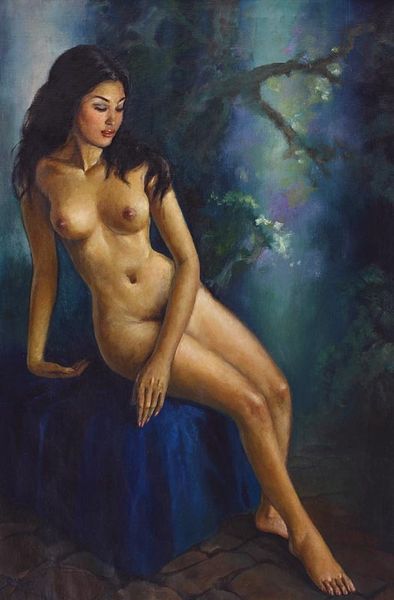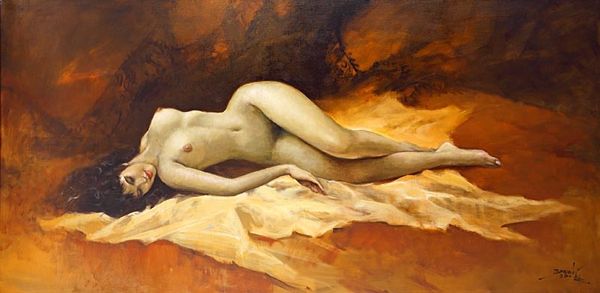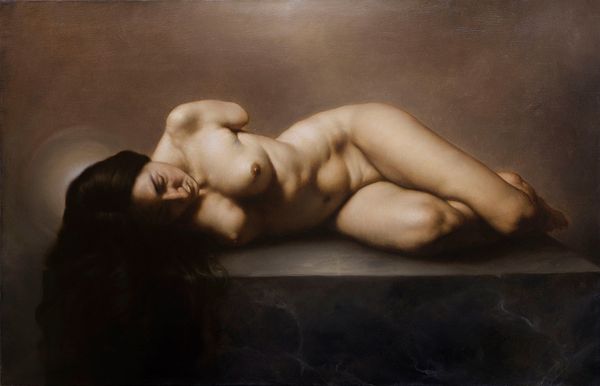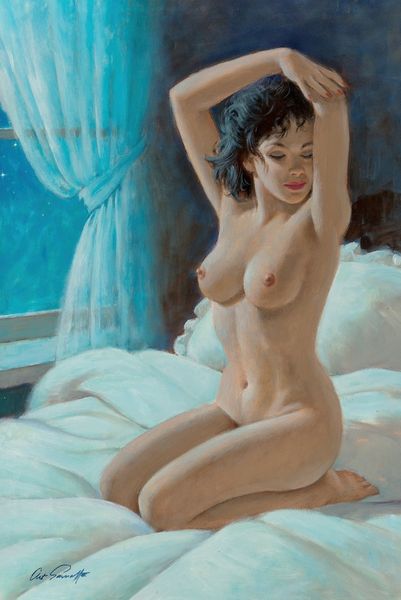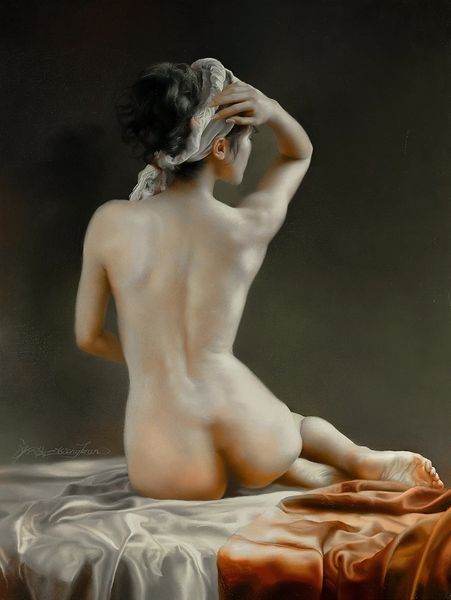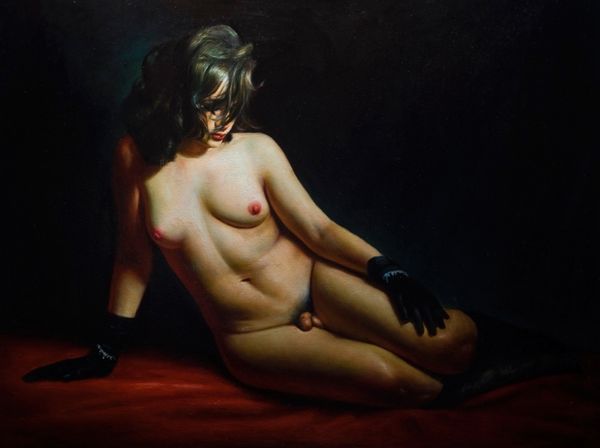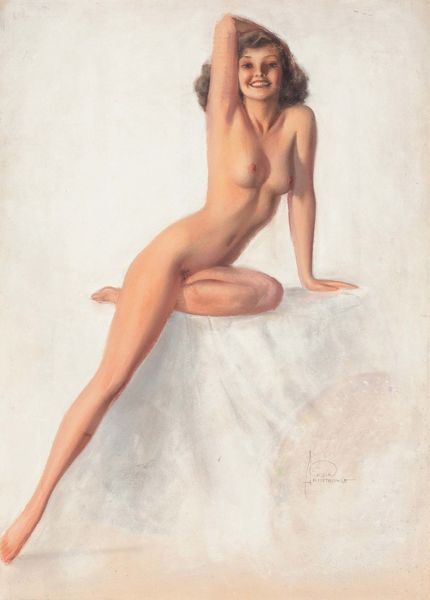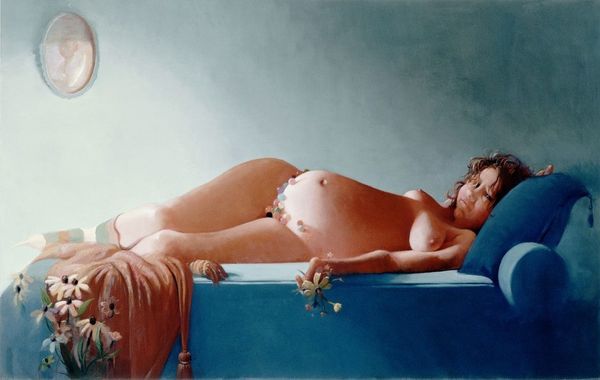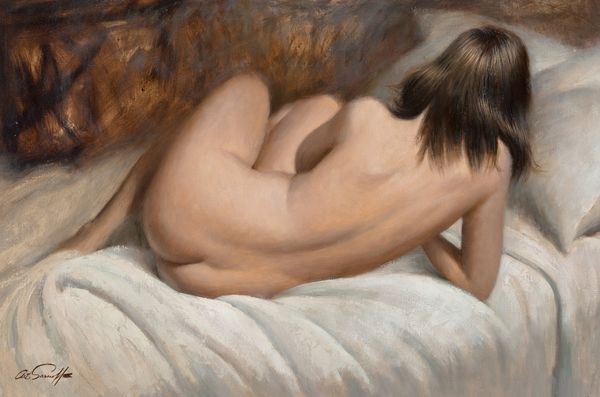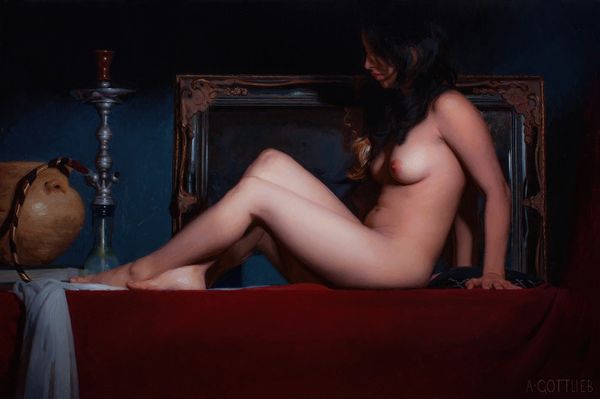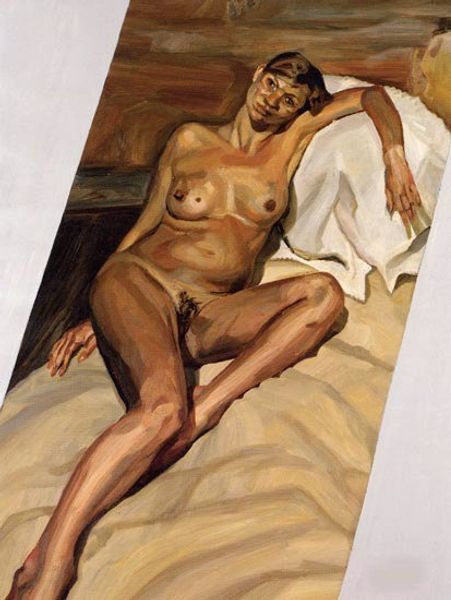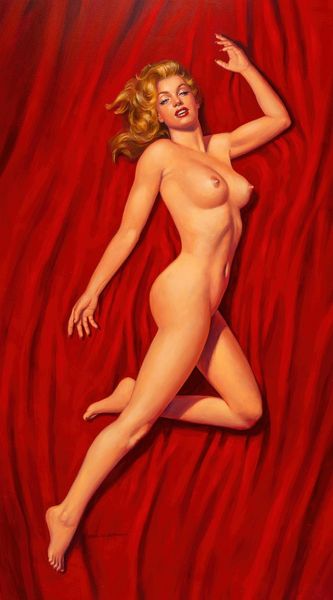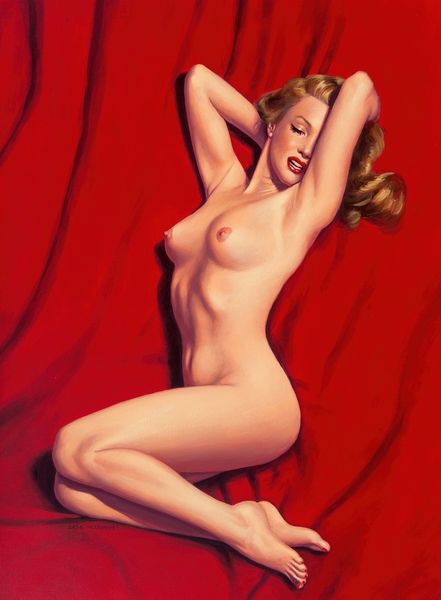
painting, oil-paint
#
portrait
#
painting
#
oil-paint
#
acrylic on canvas
#
academic-art
#
nude
#
erotic-art
#
realism
Copyright: Basuki Abdullah,Fair Use
Editor: Here we have Basuki Abdullah's oil painting "Nudity." It’s striking how the dark hair contrasts against the luminous skin and that dramatic blue background. What do you make of this work? Curator: Well, from a historical perspective, we need to consider the social and cultural contexts in which such a piece was produced and received. Abdullah was working in a time of shifting artistic values and growing national consciousness. While trained in a very academic style of painting, these kinds of 'nude' works existed in a fraught place as postcolonial nations asserted their cultural identities, grappling with Western art traditions, often simultaneously embracing and rejecting them. Do you think this image feels confrontational? Editor: Not particularly. I think I'm missing that deeper layer of meaning. The style feels very classical to me. Curator: Exactly. It consciously positions itself within that tradition, invoking the "gaze" of the viewer, framing and objectifying. However, there's always tension: between its academic veneer and the growing cultural debates on the depiction of women. What would a Western painting like this have *meant* to its viewers in Indonesia at that time? It invites these kinds of questions, especially as to its public reception and perceived social implications. Editor: So it's less about the image itself, and more about what it *represented* to the people viewing it at the time? Curator: Precisely. How art participates in, and is shaped by, power dynamics and cultural identities is something vital for understanding not just Abdullah's work, but art in general. Editor: I’ve never really thought about art that way. This has changed my perception. Curator: It’s vital to remember that art never exists in a vacuum. Now, tell me, does your perception of this painting shift, knowing it was seen differently based on someone’s background and position within society?
